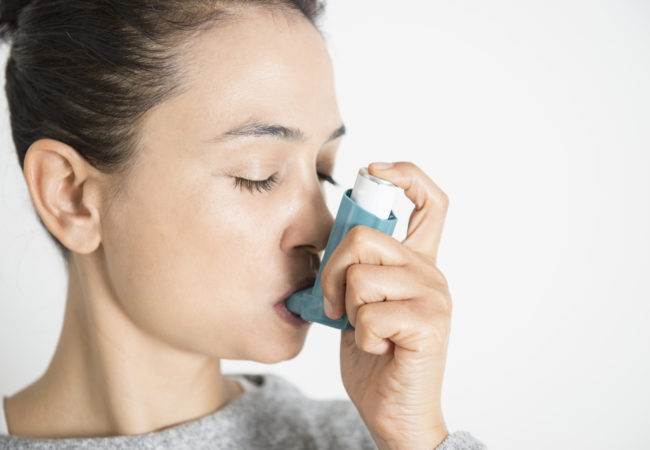Adult-onset asthma can be a hassle for people who need to keep up with the demands in the office and at home. In most cases, it is also triggered by workplace irritants or an unhealthy environment at home. The treatment process is more complicated as a result because not only does the affected individual have to handle pressure in the office, but must also manage the symptoms.

Diagnosis and Symptoms
Most cases of adult-onset asthma, sometimes called occupational asthma, also have complaints about allergies and irritants. Add to that the stress, unhealthy working environment, hormonal changes, and a poor lifestyle, a worker will most likely be vulnerable to asthma. You should schedule a checkup with your doctor as soon as possible if you see any of the following symptoms: frequent coughing, wheezing, tightness in the chest, breathing difficulties, and shortness of breath.
Childhood and Adult-Onset Asthma
Although the symptoms are quite similar, asthma attacks are more common among children because their bodies are more sensitive than the adults’. However, most asthma-related deaths are more common among adults, especially the elderly. The treatment process is also different, because childhood asthma is not often caused by allergies or triggers.
Triggers and Medication
Generally, the triggers for adult-onset asthma are the same as those for childhood asthma. Your doctor will advise you to avoid smoke, dust mites, mold and mildew, feather bedding, animal dander, dry air, cold temperature, and anything that can trigger an attack. You will also be given one of the two asthma medications, such as the bronchodilators and the anti-inflammatories. These can be taken by inhaling or swallowing. It’s also important to determine if your asthma is triggered by specific allergies, which can also be treated with other medications. The goal of the treatment is to reduce the severity of the symptoms so that you can still perform your tasks regularly.

Diet and Exercise
Proper diet and exercise will reduce some of the symptoms of asthma, but you need to consult your doctor before starting any program. While there are no convincing studies that link nutrient deficiency to asthma, you will be advised to eat a complete, healthy meal everyday to improve your overall health. Reduce your consumption of trans fat, omega-6 fats, and processed food. Avoid food that will trigger allergies as they can cause life-threatening attacks. Excess weight is often linked to adult-onset asthma, that is why you will also be advised to maintain an ideal weight through doctor- approved exercises and workout routines such as walking, swimming, yoga, biking, and others.

Asthma Attacks
You should also have a plan ready in case you have an asthma attack at the office. Always take your medication with you and get treated as soon as you see the signs. Look out for the following symptoms and get to the nearest clinic or hospital for treatment: shortness of breath, tight chest, bluish lips, inability to speak, confusion, lack of concentration, breathlessness, strained muscles, and hunched shoulders.